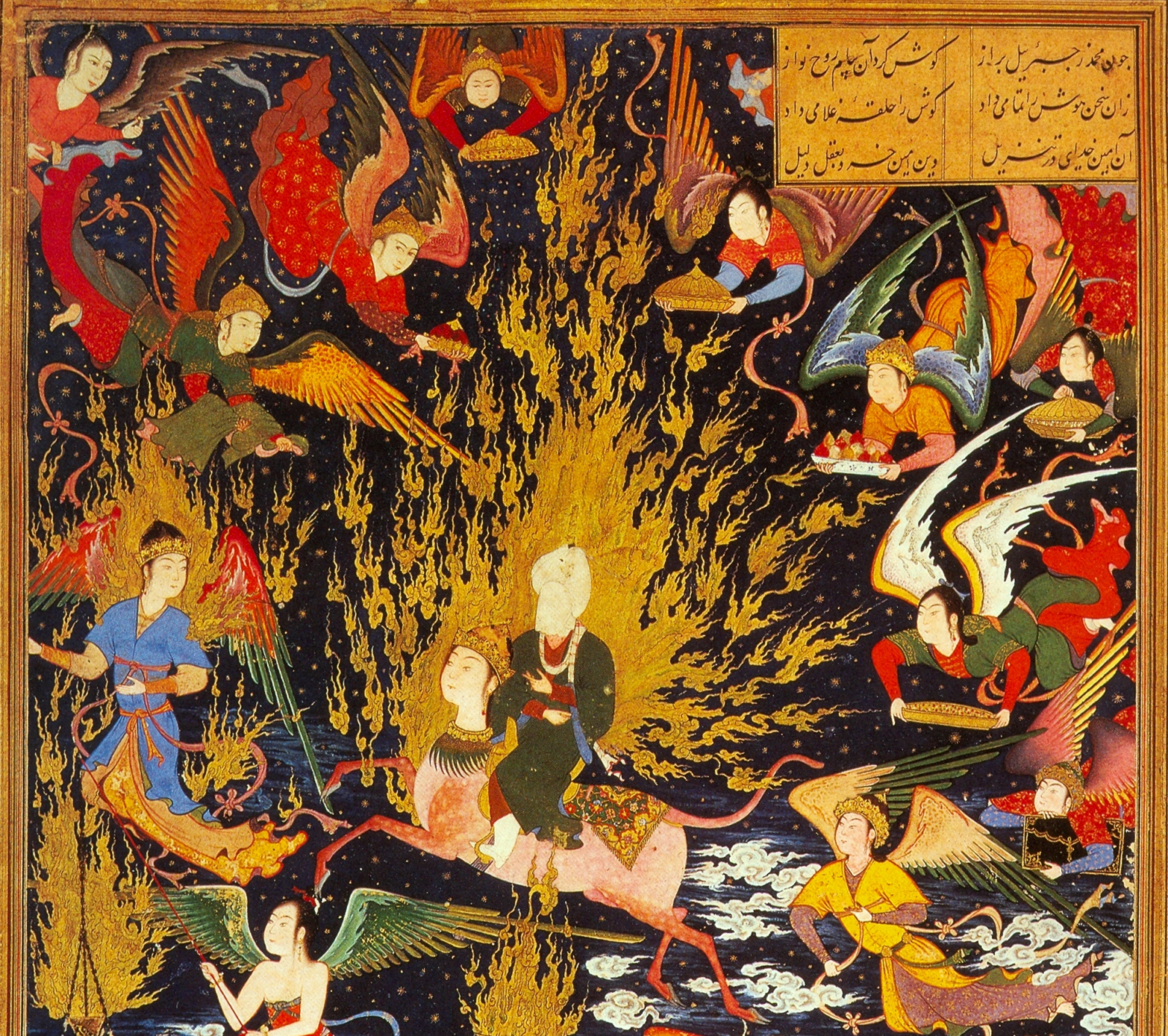Blogs en video's
Medieval Sufi Psychological Theory and its Socio-Political Relevance
In the twelfth or early thirteenth century, a certain Sharaf al-Din al-Balkhi dreamt that he was in an expansive desert, completely empty apart from a single well. At first, he witnessed smoke rising from the well. This was followed by various animals, including wolves, scorpions, monkeys and snakes. The animals constantly transformed into humans and reverted back to their animal forms while also attacking one another. Suddenly a giant serpent emerged from the well and swallowed all the animals before tiring and spitting them back out again.
This frightening experience perturbed al-Balkhi so much that he sent a letter detailing it to his Sufi master Majd al-Din al-Baghdadi asking for an interpretation. Al-Baghdadi responded with the following interpretation: The desert symbolises existence; the well represents the dreamer’s heart (the connection between man’s hidden immaterial soul and manifest material body), the animals represent the negative attributes of the dreamer’s ego, while the serpent represents the dreamer’s spiritual progression. Al-Baghdadi tells al-Balkhi that his dream represents his psychological state. He attempts to overcome the negative attributes of his ego, but he ultimately is spent by the process and must release the attributes which he had initially subdued, thus remaining in a spiritually incomplete state.
This exchange of letters between Sufi master and disciple not only reveals the emergence of a highly systematic psychological theory, but also marks a shift in Medieval dream theory which came to focus on the diagnostic value of dreams rather than their divinatory value. During this period, Sufis of various strands were developing more complex existentialist mystical-philosophies where the analysis of the inner experiences of the individuals was central.
Dream Theory in Kubrawi Sufism
For Majd al-Din al-Baghdadi and his master Najm al-Din Kubra, the eponymous founder of the Kubrawi Sufi order, developing a psychological theory which underpins dream interpretation depended on the conception of man as a microcosm. This is explained as a result of the process of creation. The human body was thought to be the most complex material being and containing all the realities of the manifest world, whereas the human soul contained within it all the realities of the hidden world.
Humans were thought to be the most complex composition of elements. They share with animals the faculties of movement and perception, the vegetative faculties of growth and reproduction and mineral faculties in terms of composition. Therefore, they were thought to be furthest removed from the natural state of the immaterial soul, and furthest from God, and requiring a spiritual ascent back to Him.
This is reflected in dream interpretation. Animals represent the lower faculties of the human being, attributes predisposed to seeking pleasure and personal gain. On the other hand, the higher faculties of the soul, such as the spirit or intellect, are often represented as coloured lights or stars. Hence, dreams and visions can be used to diagnose the human being’s spiritual organs, with this cosmological guide. The goal of the Sufi, of course, is to transcend the soul completely in the presence of God and this is expressed through a vision of complete abstraction in Kubrawi thought, usually a colourless white or black light since God cannot be represented in an image. Upon such spiritual completion, one transitions from a disciple to a master.
Sufi psychology in period of transition
This was also a time of increased institutionalisation within Sufism. Gradually, Sufi communities were becoming more formalised, coalescing around one particular master, forming institutions which would last for centuries, whereas previously they had sprung up around one or more charismatic figures and disappeared with their deaths. Moreover, Sufism came to play a more prominent political role, in a fractured political landscape, competing rulers gained legitimacy by patronising Sufi masters.
Sufism is often considered a manifestation of Islam that has little concern with socio-political events. Indeed, the link between the developments in psychological theory, the focus on individual experiences, and the greater socio-political role of Sufism, is not immediately clear. However, from the case above, there are obvious societal implications for the development of such a systematic dream theory. Not only does it facilitate the centralisation of authority in the Sufi master, but it also allows grants the master the authority to interpret the most intimate and private experiences of individuals and contextualise them within a shared psychological and cosmological framework. At a time of increasing violence and uncertainty with the Mongol invasions taking place in the early thirteenth century, Sufi psychological theory could mitigate against the social dislocations of the period and provide a sense of continuity and cohesion somewhat independently from the state. For these reasons, good relations with Sufis were essential for political rulers.
Majd al-Din al-Baghdadi was drowned in the Oxus river in the year 1219 by the then Khwarazmshah ‘Ala’ al-Din Muhammad (ruler of Iran and Central Asia), allegedly for having an affair with a royal princess. Al-Baghdadi, for his part, claimed that they were married in secret. The Mongol invasions occurred in the following year of 1220 shortly after this event. The Sufi hagiographical tradition soon came to paint this catastrophe as the result of the Khwarazmshah’s actions; it was God’s punishment for the Shah’s transgression against one of His intimate devotees. While clearly serving as a warning for rulers to treat the Sufi masters appropriately, the hagiographies perhaps do touch on something which did likely contribute to the downfall of the Khwarazmshah. By alienating the religious establishment, the Shah had weakened his already fractious empire further, ensuring that it was unable to withstand Genghis Khan’s armies.

